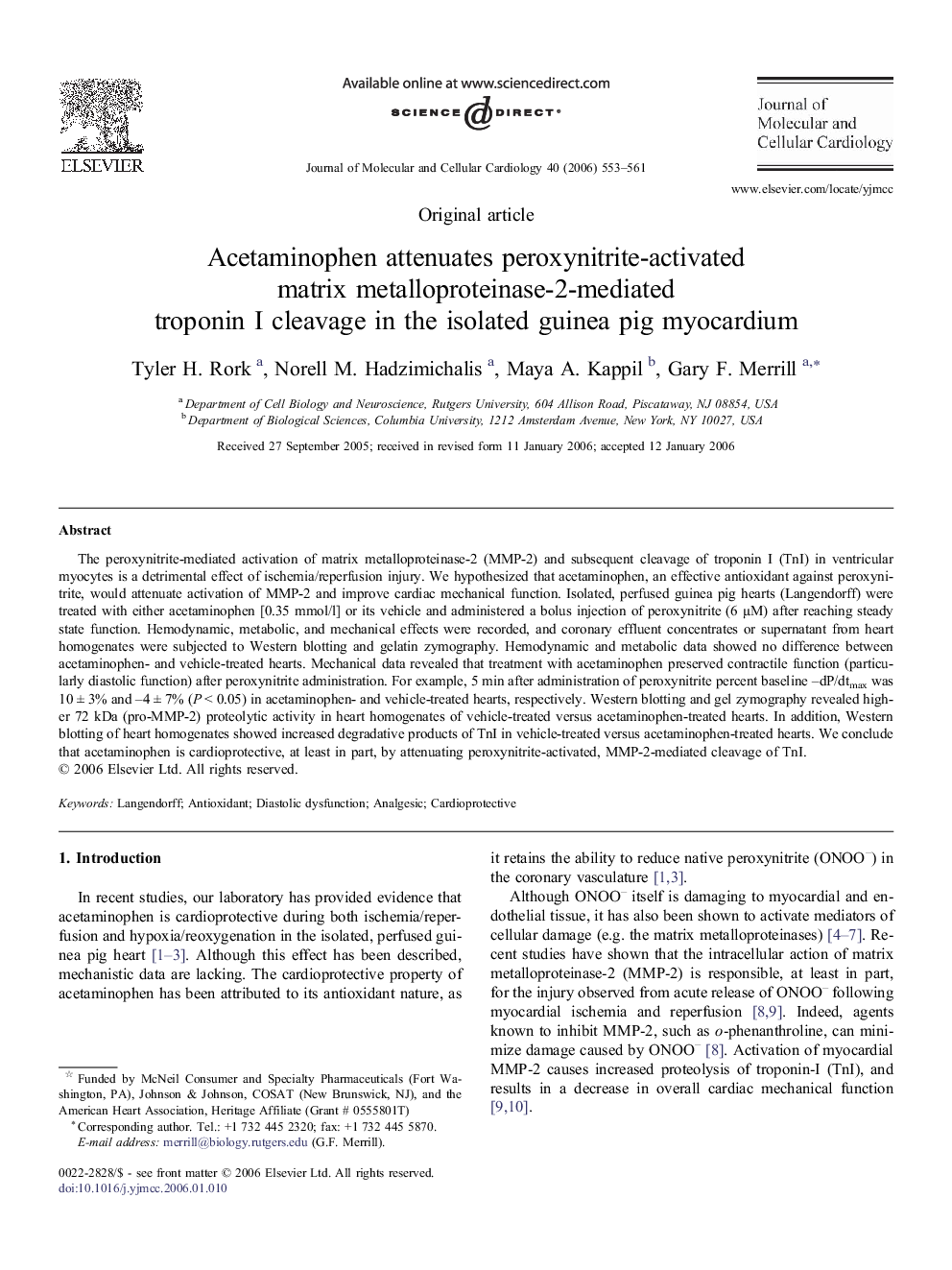| Article ID | Journal | Published Year | Pages | File Type |
|---|---|---|---|---|
| 2192525 | Journal of Molecular and Cellular Cardiology | 2006 | 9 Pages |
Abstract
The peroxynitrite-mediated activation of matrix metalloproteinase-2 (MMP-2) and subsequent cleavage of troponin I (TnI) in ventricular myocytes is a detrimental effect of ischemia/reperfusion injury. We hypothesized that acetaminophen, an effective antioxidant against peroxynitrite, would attenuate activation of MMP-2 and improve cardiac mechanical function. Isolated, perfused guinea pig hearts (Langendorff) were treated with either acetaminophen [0.35 mmol/l] or its vehicle and administered a bolus injection of peroxynitrite (6 μM) after reaching steady state function. Hemodynamic, metabolic, and mechanical effects were recorded, and coronary effluent concentrates or supernatant from heart homogenates were subjected to Western blotting and gelatin zymography. Hemodynamic and metabolic data showed no difference between acetaminophen- and vehicle-treated hearts. Mechanical data revealed that treatment with acetaminophen preserved contractile function (particularly diastolic function) after peroxynitrite administration. For example, 5 min after administration of peroxynitrite percent baseline -dP/dtmax was 10 ± 3% and -4 ± 7% (P < 0.05) in acetaminophen- and vehicle-treated hearts, respectively. Western blotting and gel zymography revealed higher 72 kDa (pro-MMP-2) proteolytic activity in heart homogenates of vehicle-treated versus acetaminophen-treated hearts. In addition, Western blotting of heart homogenates showed increased degradative products of TnI in vehicle-treated versus acetaminophen-treated hearts. We conclude that acetaminophen is cardioprotective, at least in part, by attenuating peroxynitrite-activated, MMP-2-mediated cleavage of TnI.
Related Topics
Life Sciences
Biochemistry, Genetics and Molecular Biology
Cell Biology
Authors
Tyler H. Rork, Norell M. Hadzimichalis, Maya A. Kappil, Gary F. Merrill,
